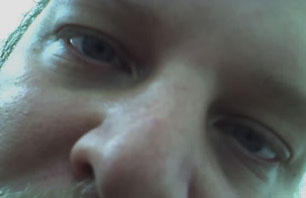Friday, October 7, 2011
Comparison Taste: Glayva, Drambuie, Benedictine
My friend Mike recently was extolling the "best liqueur in the world", an herb-infused scotch called "Glayva". Being rather familiar with the two other famous herb-infused concoctions, Drambuie and Bénédictine, I decided to buy a bottle of Glayva and do a side-by-side 3-way taste test.
First off, getting Glayva in America is frickin' hard. The number of places that stock this beverage is minimal. You might wind up having to order over the internet (and thus tacking on $10 or $15 to the cost of a bottle). Prices for Glayva are roughly the same as that of Drambuie and Benedictine: About $31 to $34 per 700 mL bottle.
1. Drambuie.
The principal taste of Drambuie is its scotch foundation, with the common alcoholic tingling and oak bouquet of the breed. Following this is a combination of honey wrapped around licorice/anise. Finally, as the alcoholic scotch tang settles, a gentle waft of spices, like opening your mother's spice cabinet, comes to the fore, and your mouth is warmed. It's not subtle or mild (but only in a way that foreshadows what I am going to say about the other 2 brands featured), but it is a fantastically friendly drink without a kick or harshness to it.
2. Glayva.
In comparison to Drambuie, the scotch foundation has disappeared completely. The mild alcohol twang is about 75% of the previous, and it comes after the honey flavor instead of in front of it as in the previous, and the nip of licorice is replaced with a comfortable, fruity accent to the honey. The range of spice flavor at the back end trends slightly more toward a dusky and smoky "French boulangerie" than the Drambuie's bright "Italian kitchen" range. Glayva is much more a liqueur while Drambuie is more a fortified scotch.
3. Bénédictine.
Where Drambuie and Glayva hung the honey flavor up in the pole position, Benedictine has almost no honey flavor at all. No scotch flavor either. I've drank more Bénédictine than either of the other liqueurs, and I always think that the principal aspect of Bénédictine is "essence of pine tree with a background of French toast and an aftertaste of pepper." If I had to carry on with the "kitchen comparisons" that I used for the previous two liqueurs, it would be "Christmas hearth fire". It has about the same alcohol twang as the Glayva, and occupies the same beverage niche as Glayva as well.
Verdict.
All three of these drinks are excellent in their own way. Glayva and Bénédictine are much more closely related to each other than either is to the Drambuie, which really stands as a separate type of liqueur from the other two. Drambuie is best enjoyed alone with a cigar and a pair of slippers. Glayva and Bénédictine are best enjoyed at the dining room table after dinner with friends.
I consider Glayva and Bénédictine equals in terms of quality of taste. I personally find Bénédictine to have a more complex taste and if I had to make a choice between that or the Glayva, that would be it. But that is merely a personal preference between two excellent, competing beverages. Neither will ever be boring, common, or comparable to any other liqueur on earth. I only wish Glayva were sold in more places in America so that it could get the attention and exposure it deserves.
Subscribe to:
Post Comments (Atom)



1 comment:
Excellent and unbiased observations.I agree on the mood for Glayva except it is also a drink I share with special friends after dinner AWAY from the dining table.
Post a Comment